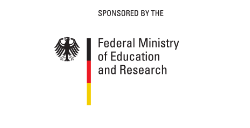
LIB PhD Program
The LIB is internationally recognized by its strong collection-based basic and applied biodiversity research. Aspects of research conducted at LIB cover classical taxonomy, systematics, morphology, genomics, speciation research, evolution, species distribution modeling and various aspects of biodiversity assessments and monitoring. With its biodiversity assessment and monitoring research it links collection-based, species-focused research with ecosystem studies and services.
In these research fields, LIB offers structured mentoring and supervision for PhD students. The goal of this program is to support early steps in a scientific career and help to develop personally tailored options.
In order to achieve this goal, we offer an accompanying program of seminar series, lectures, practicals and soft skill workshops. These activities are organized in time block structures with obligatory and facultative courses in order to fit into the usually tight schedules of many research projects. By opening the training program to all young scientists at LIB, every Master and Bachelor student, as well as Post-Doctoral researchers, may also benefit from the program.
This page will be updated from time to time.
Teaching within the PhD program
We offer a program of seminar series, lectures, practicals and soft skill workshops. These activities are organized in time block structures with obligatory and facultative courses in order to fit into the usually tight schedules of many research projects. By opening the training program to all young scientists at LIB, every Master and Bachelor student, as well as Post-Doctoral researchers, may also benefit from the program.
The coordinator is the administrative head of the graduate program and supervises all coordinated activities. She/he is responsible for the organization and coordination of the curriculum and will set up polls among the students to plan the modules for each year. We aim to offer at least three courses or workshops each year. Although there is no strict lower limit for the number of participants courses with fewer than five students interested will likely be postponed to the next year. Exceptions to this rule are of course possible.
Curriculum and course program
Courses are either offered by LIB staff or external specialists.
Obligatory courses (in total a maximum 14 days workload)
Introduction to epistemology and ethics in science (3-5 X 90 minutes, in house)
Foundations of scientific thinking are rarely taught, but should be familiar to any researcher. We will discuss the distinction of different levels of ontology, the role of logics, what is a truth in science, and the disclosure of unethical behavior using real examples from published literature.
Principles of Systematics, Taxonomy and Nomenclature (2 days, in house)
This seminar focuses on general principles of taxonomy and classification including the zoological nomenclature and scientific theory, procedures and methods related to taxonomy. It provides not only the basic skills for a taxonomist but also introduces into newest and cutting edge methods of species delimitation where classical "Old School" knowledge is linked with modern hypothesis-based science.
Lectures will provide an overview on the history of taxonomy, species concepts, zoological nomenclature, classification and species delimitation based on morphological and molecular traits as well as on integrative taxonomy.
General introduction in cladistics - morphology (1 day, in house)
Epistemological foundations of cladistics will be presented, together with best practice rules of character analysis and character coding. Participants will learn the basics of distance and maximum parsimony clustering of morphological data. Practical exercises with error analyses complete the course.
General introduction to molecular phylogenetic systematics (2 days, in house)
The course introduces the following main topics: (i) alignments as hypotheses. Bad alignments can lead to wrong trees, (ii) distances among sequences and distance based methods, tree reconstruction methods based on optimality criteria, such as maximum likelihood (iii) Bayesian methods, (iv) sources of error and biases in phylogenetic tree reconstruction, (v) measures of branch support, (vi) phylogenetic dating. All these topics can only be introduced in brief.
Overview Imaging morphology (1/2 day, in house)
The aim of the course is to give students an overview over the different imaging methods including their potential applications, advantages and disadvantages. Additionally examples will be provided for potential applications.
Scientific collecting, field logistics, data management (1 day, in house)
The students will get an overview on the importance of correct collecting methods starting from planning an expedition, over acquiring necessary permits and how to know whether this is necessary (Nagoya!), to practically preparing field equipment and gold standard documentation approaches. They learn how to collect morphology & DNA-friendly and efficient in terms of data management and sustainability.
Presentation for scientific and public audience (1 day, in house or external)
The students will get an overview on the importance of correct collecting methods starting from planning an expedition, over acquiring necessary permits and how to know whether this is necessary (Nagoya!), to practically preparing field equipment and gold standard documentation approaches. They learn how to collect morphology & DNA-friendly and efficient in terms of data management and sustainability.
Scientific writing (1-2 days, in house or external)
The course is about
• How to plan your publication
• how to find the right journal (avoid piracy journals)
• practical techniques to develop scientific writing skills
• guidelines to write an article in an efficient way
• understanding publishing processes
Writing a scientific grant application (2 days, external)
The course is about
• How to write hypothesis driven project proposals
• how to “sell” and convince reviewers about the importance of your work
• developing time schedules, milestones deliverables
• how to manage deadlines
• reviewing processes
Other mandatory activities
Monday Colloquium at ZFMK [10am] (at least 15 visits per year)
Talk within the Monday Colloquium (at least 2 talks within the duration of the PhD project)
Biological Colloquium at University of Bonn (at least 10 visits per year)
Participation in students’ yearly retreat and presentation of a talk (at least one)
Facultative courses (all organized by ZFMK staff in house)
The facultative courses are meant to broaden the PhD candidates horizon and knowledge about methods and tools used at ZFMK and other modern research institutes with scientific collection holdings. Whether a certain course should be elected is to be discussed with the respective supervisor.
Computational skills
HPC@ZFMK and introduction to Linux (2 days)
Collecting & collection related methods
Collection and Extraction of Soil Arthropods (2 days)
Preserving samples for molecular and morphological work (1/2 day)
Morphological data bases (MorphDBase) (1/2 day)
Diversity Workbench at ZFMK (1/2 day)
Research and methods Morphology
Basics in histology (2 days)
Geometric morphometrics (2 days)
MicroCT scanning (1 day)
3D reconstruction (2 days)
Phylogenetic tree reconstruction programs (morphological), PAUP, TNT (2 days)
Introduction in ecomorphology (1/2 day)
Research and methods Molecular
Programs and databases relevant to start molecular work (1 day)
Metabarcoding (Theory and practical applications) (2-4 days)
BLAST – searching for sequences in data bases (1 day)
Alignment programs (2 days)
Alignment evaluation programs in molecular analyses (2 days)
Measure of phylogenetic support (1 day)
Genetree based phylogenetic methods (multispecies coalescent methods) (2 days)
Species delimitation tests (2 days)
Analysis and visualisation of data from population genetics/genomics approaches (2 days)
Evolutionary models, maximum likelihood and model selection (2 days)
Evolutionary models and distance methods used for phylogenetic tree reconstruction (2 days)
Species, habitat and evolution modelling related methods
Phylogenetic comparative methods (2 days)
Introduction into Geographic Information System GIS (5 days)
Introduction to scientific programming in R (5 days)
Research organization skills
Working with reference databases (Endnote, etc.) (1 day)
Using libraries and retrieving information from online platforms (1 day)







